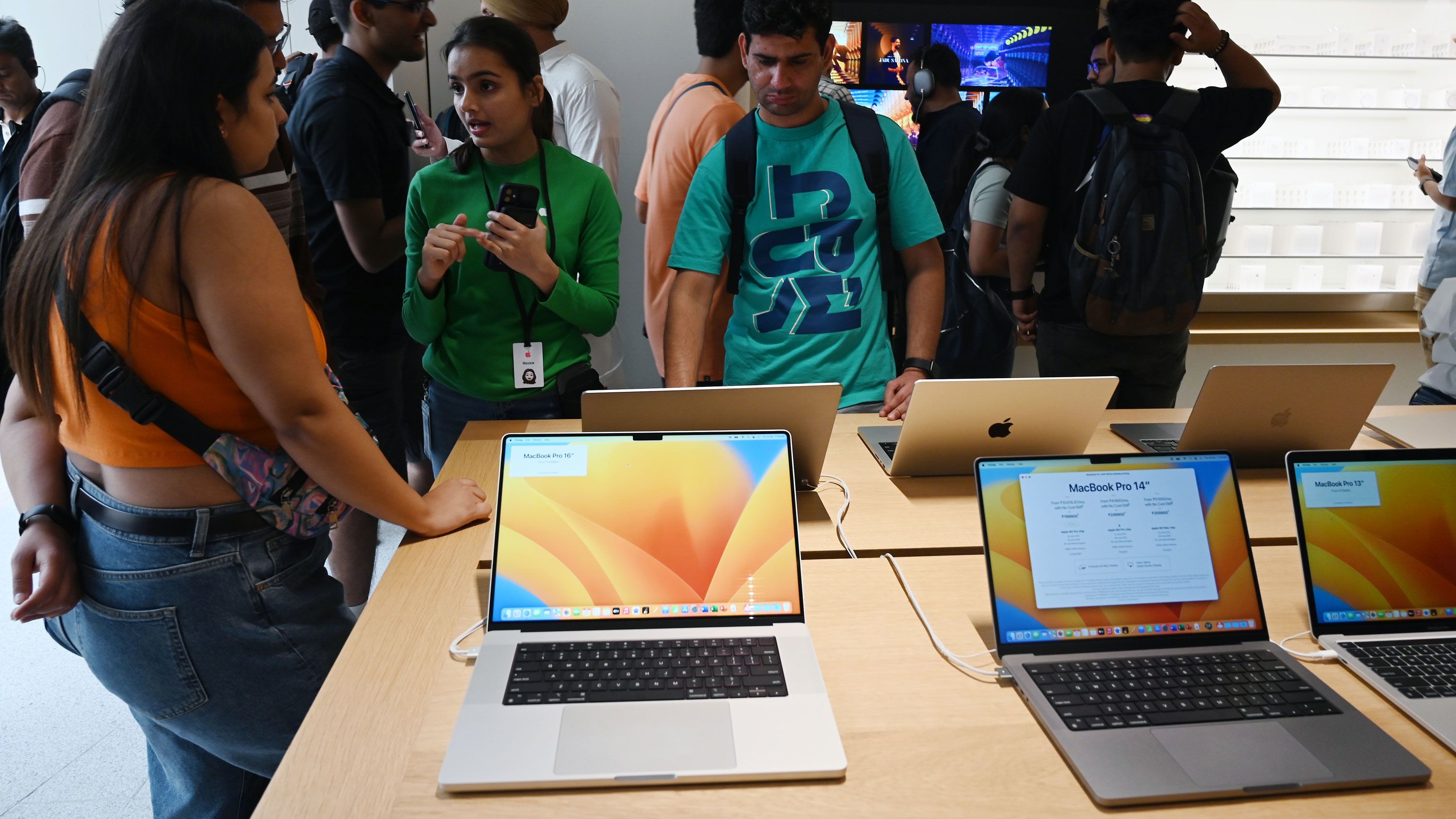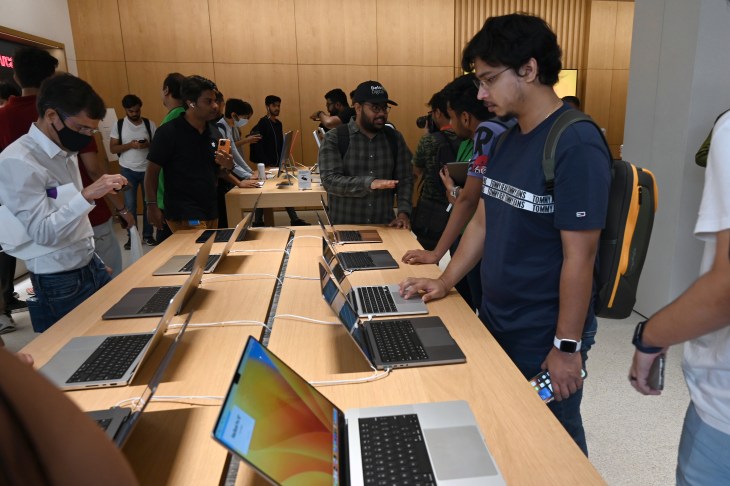India Abandons Plan to Impose Restrictions on Laptop Imports, Embracing a Watchful Approach

India Abandons Plan to Impose Restrictions on Laptop Imports, Embracing a Watchful Approach
In a significant turn of events, the Indian government has decided to abandon its initial plan to impose restrictions on the import of laptops. Trade Secretary Sunil Barthwal made the official announcement, shedding light on the government’s new approach to the issue. This sudden change in policy reflects India’s commitment to fostering a more open trade environment while emphasizing the need for enhanced vigilance in the sector.
The Indian government’s decision to step back from implementing restrictions on laptop imports comes as a response to concerns raised by various stakeholders, including the technology industry, and takes into account the broader implications on trade and technology access. Trade Secretary Sunil Barthwal articulated the government’s new perspective, highlighting the desire to maintain a watchful eye on import activities without hampering the free flow of laptops into the country. This approach signals a shift towards balancing the interests of domestic manufacturing and technology access in a globalized world.
Background and Initial Proposal
Before delving into the specifics of the Indian government’s revised stance, it is essential to understand the context that led to the original proposal. The potential restrictions on laptop imports were initially introduced as part of the government’s efforts to boost domestic laptop manufacturing and reduce India’s dependence on foreign-made devices. This initiative was seen as an extension of the ‘Make in India’ campaign, which aimed to promote local manufacturing and reduce imports, thereby boosting the domestic economy.
Under the original plan, importers were set to face stringent regulations that could have included mandatory certification requirements, additional tariffs, or quotas on the number of laptops allowed to be imported. The government’s intention was to encourage local production, particularly in the electronics sector, where India was heavily reliant on imports. This would have potentially allowed Indian manufacturers to gain a more significant foothold in the laptop market, create job opportunities, and stimulate economic growth.

Industry Concerns and Public Response
However, the proposal faced significant backlash from various quarters, prompting the government to reconsider its stance. The technology industry, in particular, expressed concerns about the potential restrictions, emphasizing that they could hinder innovation and limit access to the latest laptop models. Tech companies operating in India argued that such restrictions might result in a shortage of laptops, delayed product launches, and increased prices for consumers.
Furthermore, advocacy groups and experts cautioned that imposing strict import restrictions on laptops could be counterproductive. The policy might inadvertently hinder India’s technological advancement and deter foreign investment, which plays a pivotal role in fostering innovation and creating job opportunities in the country.
In response to these concerns, the Indian government decided to pivot towards a more balanced approach. Trade Secretary Sunil Barthwal stated that the government’s primary objective was to keep a close watch on import activities rather than imposing outright restrictions. This shift in policy aims to maintain a conducive environment for innovation and technology access, while also encouraging domestic manufacturing and supporting the ‘Make in India’ campaign.
The Way Forward: A Watchful Approach
As India reevaluates its approach to laptop imports, the government is actively engaging with industry stakeholders to determine a suitable course of action. Director General of Foreign Trade announced that consultations are ongoing, and a new order regarding laptop imports will be revealed by the end of October. This open dialogue with the industry indicates the government’s commitment to formulating a policy that accommodates the concerns of both domestic and international players.
The decision to adopt a watchful approach instead of rigid restrictions reflects India’s recognition of the complex dynamics of the global technology market. The country is keen on preserving its position as a thriving hub for technology and innovation while simultaneously nurturing its domestic manufacturing sector. This change in policy showcases a willingness to adapt to evolving global economic trends, ensuring that India remains competitive and accessible on the world stage.

Balancing Domestic Manufacturing and Technology Access
India’s approach to laptop imports represents a broader challenge faced by many countries in the age of globalization. Striking a balance between encouraging domestic manufacturing and ensuring the availability of a wide range of technology products is a delicate and intricate task. India’s policymakers are grappling with this challenge as they work to align their goals with the ever-evolving landscape of international trade and technology.
On one hand, the ‘Make in India’ campaign is driven by the desire to reduce dependence on foreign imports, create jobs, and boost the domestic economy. The manufacturing sector plays a pivotal role in India’s economic growth, and fostering local production can lead to substantial socio-economic benefits. By incentivizing domestic manufacturing, the government aims to harness the potential of its large and skilled labor force.
On the other hand, the global technology market is characterized by rapid innovation and ever-changing consumer demands. Restrictions on imports could limit access to cutting-edge technology, stifle competition, and result in higher prices for consumers. Moreover, it could deter foreign investment, which is essential for economic growth and the development of advanced technology infrastructure.
The Broader Implications
The Indian government’s shift from imposing restrictions to maintaining vigilance on laptop imports holds broader implications for trade and technology. It showcases a growing awareness of the intricate interplay between domestic manufacturing and global technology access.
In today’s interconnected world, technology is at the heart of economic growth and development. It fuels innovation, increases productivity, and drives the creation of new industries. Restricting access to technology can have adverse consequences, including hindering progress and development. As such, India’s revised approach to laptop imports recognizes the importance of a more nuanced and flexible policy that accommodates the ever-changing demands of the technology industry.
This shift in approach is particularly relevant in the context of the ongoing digitization of the Indian economy. With initiatives such as ‘Digital India,’ the country is making significant strides in adopting technology to improve governance, provide essential services, and drive economic growth. Access to the latest technology is integral to the success of these endeavors, and any restrictions on laptop imports could have hindered their progress.
Moreover, India’s decision to focus on vigilance rather than restrictions demonstrates an understanding of the globalized nature of supply chains. Many laptops and electronic components are sourced from various countries, and imposing restrictions could disrupt these intricate networks. A more pragmatic approach that promotes transparency, quality control, and industry engagement aligns with India’s role in the global economy.

Implications for the Global Tech Industry
The change in India’s approach to laptop imports also has implications for the global technology industry. India is a significant market for tech companies worldwide, and any restrictions on imports would have impacted their operations and strategies in the country. The decision to maintain vigilance rather than restrictions offers a more conducive environment for foreign tech firms to operate, innovate, and contribute to India’s economic growth.
It is also an acknowledgment of the fact that the global technology market is highly competitive, with companies from various countries vying for market share. An open and transparent environment for trade benefits consumers, as it allows them access to a wide range of products at competitive prices.
Furthermore, India’s decision is a reminder that countries must adapt to the changing dynamics of international trade and technology. The traditional protectionist approach to trade is increasingly being replaced by a more open, cooperative, and interconnected approach. This is in line with the broader global trend toward creating trade agreements that facilitate the movement of goods and services while addressing concerns related to quality, labor standards, and environmental impact.
Conclusion
India’s decision to abandon its plan to impose restrictions on laptop imports marks a significant shift in its trade policy. The government’s new approach, focused on vigilance rather than restrictions, reflects a nuanced understanding of the complex dynamics of the global technology market. It highlights




